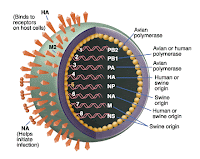The premise is simple. Once or twice each quarter, students write a brief essay on a topic of their choice and read it out loud to their classmates. The idea for these papers is that they are miniature reflections and meditations on life. Martin asks his students to be observant of the moment, and to "explore occurrences that would usually be dismissed as unimportant." The assignment isn't graded, and the teacher refrains from making negative comments. Martin explains:
If a paper is bad, I don’t penalize. By not
penalizing for lack of effort, I make it shameful not
to put some effort into it. By not counting off for
laziness, I make laziness a lazy choice. Carelessness
is prevented by caring more.
Once students have something worth saying, they will
struggle willingly to say it right. Eventually, students
will start to see what it is that makes a paper have impact.
The student who tries to get a grade without any effort does
not come across as a clever trickster who “got something
for nothing”; instead the student is seen as
someone who gets something and gives back nothing.
The motivation to do good work is like the motivation
operating on the playing field or on the
dance floor. It is motivation from inside and from
pride in doing good work. Ironically, by not assessing
content I put more pressure on students to come
up with something substantial.
The benefits of providing students an opportunity to write an "occasional paper" certainly seem to outweigh the drawbacks. In fact, it's hard for me to find the drawbacks, as the OP encourages students to be reflective and develop meaningful, personal compositions that show a measure of thought, creativity, and insight. It gets them up in front of the class reading to an authentic audience, and it guarantees them immediate response from their peers. And, because the only instructor feedback students receive is positive (as if the piece bombs the teacher refrains from comment), students will be more willing to go beyond the safe and predictable to the bold realm of imagination, creativity, and risk-taking - the realm where good writing lives.
